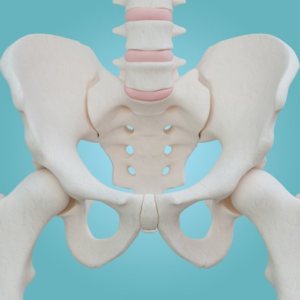Women’s Health Physiotherapy
No one ever talks about Women’s Health problems. But we have Physiotherapists who can help with incontinence and other musculoskeletal conditions like pregnancy related pains.

Women can suffer from a number of unique health issues. Some health problems are common to both women and men, but often affect women in a different way.
Although many advancements have been made over recent years in regard to addressing health issues specific to women, many of these problems remain somewhat taboo making women less likely to want to discuss their issues. ProPhysiotherapy offer women’s health physiotherapy that can help with the following issues:
Women’s Health Issues
Pregnancy, conditions related to the female organs and the menopause are all unique experiences and issues to women, which require specific support and treatment.
Pregnancy Related Pain
Pelvic Girdle Pain
Pregnancy-related pelvic girdle pain (PPGP) is an umbrella term used to describe all pregnancy-related pelvic pain, including symphysis pubis dysfunction (SPD).
PPGP is typically of musculoskeletal origin – it describes a set of uncomfortable symptoms which may be linked to excess mobility or stiffness of the pelvic joints, damage to the pelvis and due to the weight distribution of the baby. PPGP may include one or more of the following symptoms:
- pain around the pubic bone
- pain in the perineum
- pain in the thighs
- pain which worsens when walking upstairs or during single-leg activities, for example, putting socks or trousers on and getting into/out of the bath or car.
Although PPGP is not harmful to the baby, it can cause extreme pain and discomfort to the mother resulting in a negative pregnancy experience.
Women’s health physiotherapy is one of the most effective forms of treatment for a number of musculoskeletal pregnancy-related complaints including not only PPGP but also back pain and pregnancy-related sciatica. Physiotherapy focusses on a variety of rehabilitative and specific strengthening exercises to help ease symptoms as well as strengthening the pelvic floor muscles for stability.
Episiotomy and Perineal Tears
Women’s health physiotherapy can also be extremely useful to aid women in the recovery of an episiotomy or perineal tear as a result of a difficult labour. Pelvic floor strengthening exercises can help to reduce pressure on the cut and surrounding tissue as well as helping to promote healing.
Hysterectomy
A total hysterectomy is the surgical removal of the uterus (womb) and the cervix. A partial hysterectomy removes the uterus but leaves the cervix intact. A vaginal hysterectomy involves the surgical removal of the uterus and cervix through a small incision inside the vagina and an abdominal hysterectomy involves the surgical removal of the uterus and the cervix, through a small incision in the lower abdomen.
Recovery time post-hysterectomy can vary from women to women – initial recovery will focus on minimising the post-operative effects of the surgery, however following a successful recovery, with medical approval, specific strengthening exercises and physiotherapy guided by a qualified specialist physiotherapist can be extremely beneficial to long term recovery.
If the ovaries were removed during the hysterectomy, the menopause will begin a few days following the surgery, this will cause hormonal changes and associated symptoms. Keeping fit and active during the menopause is a good way to combat any unwanted side effects.
It is important to note that anybody recovering from gynaecological surgery should always check with their doctor before commencing a physical exercise program. Inappropriate exercises following a hysterectomy can cause internal injury, painful symptoms and prolong the recovery period.
The Menopause
Women going through the menopause are likely to experience a range of symptoms which may vary in intensity from person to person. Aside from the changes in mood, fatigue interrupted sleep and hot flushes, many women experience issues with pelvic prolapses, urinary incontinence, weight gain and decreasing bone strength. Lifestyle adaptations can make all the difference during this difficult time – a well-trained physiotherapist will be able to help with exercises and treatments to improve overall levels of fitness. This helps to combat the development of osteoporosis due to a loss of bone density, regular stretches and exercise can also help improve sleep disturbances and improve low mood. Targeted pelvic floor strengthening exercises also play an essential role in the prevention of urinary incontinence.
Urinary Incontinence
Urine is made by the kidneys and stored in the bladder – when the bladder is full, it contracts to push the urine into a tube called the urethra. The urethra is sealed shut by two urethral sphincter muscles, keeping the urine contained, incontinence occurs when the bladder contracts and the urethral sphincter muscles are not strong enough to keep the urethra closed, leaving the individual unable to control their urge to urinate. Although both men and women can suffer from urinary incontinence issues, it is a more prevalent issue in females due to a number of issues unique to women. The female bladder is supported by the pelvic floor muscles, when these muscles become weakened as a result of pregnancy, childbirth, the menopause or a hysterectomy, it can result in urinary incontinence. The female urethra is shorter than the males, with a lower capacity. This, as well as being more prone to damage, makes urinary incontinence much more likely to occur in women than in men. Other causes of urinary incontinence may include nerve damage, infection, obesity and excessive caffeine intake. A well-qualified physiotherapist can help in the treatment of urinary incontinence by providing targeted pelvic floor strengthening exercises – one of the best methods of combating urinary incontinence in women.
Pelvic Organ Prolapse
In some women, the pelvic organs such as the uterus, bladder and rectum slip out of their normal position and into the vagina. This is usually caused by weakened ligaments and muscles, collectively known as the pelvic floor. A weak pelvic floor may occur as a result of one of the following; the menopause, a hysterectomy, obesity, pregnancy and childbirth, an occupation which involves a lot of lifting, the ageing process or long-term constipation. Targeted physiotherapy is extremely beneficial in helping those suffering from prolapse, helping to strengthen their pelvic floor muscles, improve general fitness and educate on healthy living, our nutritionists can help establish a healthy eating plan.
Menstrual Cycle Related Pain
Many women suffer from a range of painful physical symptoms as well as mood alterations as a result of the monthly menstrual cycle. For some women, these symptoms can interfere with daily life and routines. Regular exercise, massage therapy, pilates, yoga and other relaxation techniques can all help to relieve and manage these symptoms.
Women’s Health Physiotherapy – How We Can Help
ProPhysiotherapy offer a number of unique services for women, including specialists in women’s health physiotherapy, who are able to assess, treat and support women experiencing painful or often embarrassing symptoms. If you are suffering from an issue related to women’s health, please don’t hesitate to contact our professional team for advice regarding our available treatments or to book an appointment. Our Physiotherapists work closely with local GPs, Consultant Gynaecologists and Obstetricians.
Recently specialised in pelvic health physiotherapy assessment and treatment, Anica enjoys working with her clients through often troublesome symptoms and finding out those specific activities and daily tasks that with treatment and support a patient can regain control over their lives. Her treatments start with a thorough holistic assessment and management plan with facilitation of rehabilitation through education, manual therapy and individualised exercise programmes.
So if you want to stay active through pregnancy, return to ‘being you’ in the postnatal period or you require support during those perimenopausal years and the challenges each phase of a woman’s life brings, Anica can be there to guide you as long as you need!
|
Prices |
||
|---|---|---|
| Initial assessment and treatment | 45 minutes | £76.00 |
| Follow up treatment | 30 minutes | £63.00 |
| Postnatal Assessment | 75 minutes | £125.00 |
The Experts…
Anica Coetsee
MSc MCSP
Physiotherapy Specialist
Anica graduated as a physiotherapist from Stellenbosch University (South Africa) in 2009. After graduating she focussed her career on Musculo-skeletal conditions and completed a Certificate in OMT (OrthopaedicManipulative Therapy) in 2012 and thereafter her Master’s degree in Physiotherapy in 2015. She is also an APPI trained Pilates instructor.
She has worked in different private practice settings and has always embraced working closely with the healthcare team. She also worked with a University Rugby Club in South Africa.
Since becoming a mother in 2019 she has grown her interest in Pelvic Health and is expanding her skillset in this area.
She believes in treating clients holistically with the aim being getting to the cause of the problem rather than just treating the symptoms. She believes movement and exercises are key factors in this and loves empowering her patients to improve quality of life and getting back to doing the things they love.


